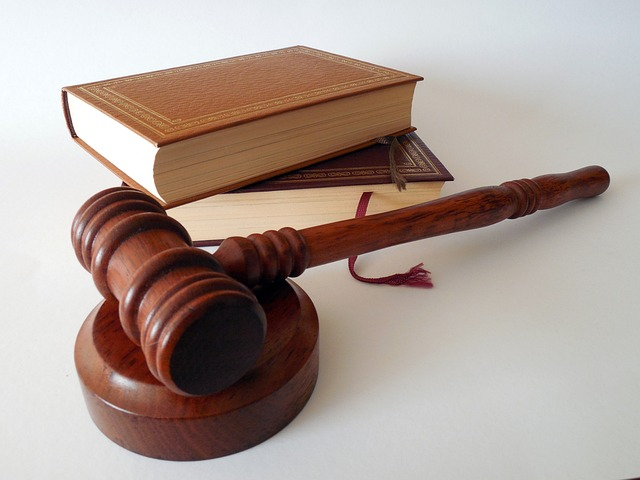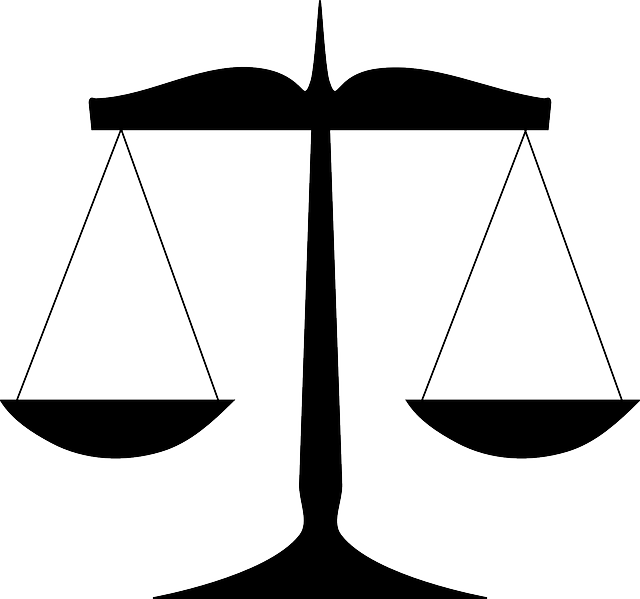Personal injury cases, with their intricate legal processes, can be overwhelming to those unfamiliar with the Florida court system. Whether it’s a car accident, a slip and fall, or any other incident causing injury due to another’s negligence, understanding the journey of a personal injury lawsuit in Florida can make all the difference.
The most important thing you can do following an accident is to seek immediate medical attention. This not only ensures your health and well-being but also plays a crucial role in documenting your injuries, which can be critical for your personal injury claim.
A knowledgeable attorney can offer invaluable guidance throughout this complex process. They can help you understand your rights, gather necessary evidence, negotiate with insurance companies, and present your case effectively in court, if necessary.
Remember, having a seasoned legal advocate at your side can ease your burdens and increase your chances of securing a fair settlement for your injuries, lost wages, and emotional distress.
At The Law Place, our experienced attorneys are dedicated to helping you navigate your Florida personal injury case from start to finish. We offer a free consultation and work on a no-win, no-fee basis, meaning you don’t pay unless we win your case.

Clarifying the Difference: Personal Injury Claim VS. Personal Injury Lawsuit
There is often confusion between a personal injury claim and a personal injury lawsuit, especially since they are closely related aspects of a personal injury case. To clarify:
A personal injury claim typically refers to the process initiated immediately after an accident where an individual has been injured due to another party’s negligence. This process involves the injured party, referred to as the claimant, and the negligent party’s insurance company. Here, the claimant (or their attorney) negotiates with the insurance company to receive compensation for their injuries, medical bills, lost wages, and other related damages.
However, if the negotiation process fails to result in a fair personal injury settlement – if the insurance company refuses to offer adequate compensation, denies the claim, or if the liability is disputed – the claimant can escalate the matter by filing a personal injury lawsuit.
A personal injury lawsuit is a legal action taken in the court system. It is initiated when the claimant (now referred to as the plaintiff) files a suit against the party at fault (the defendant). This process can lead to a trial where a judge or jury decides the outcome of the case. However, it’s important to note that even after a lawsuit is filed, settlement negotiations can continue, and most personal injury cases are resolved before reaching trial.
Knowing when to file a claim or escalate to a lawsuit is a nuanced decision best made with an experienced attorney’s guidance. This is one of the many reasons why securing legal representation early on in your Florida personal injury case is so crucial.

Stepping into the Legal Arena: Filing Your Personal Injury Lawsuit
Once you and your personal injury attorney have gathered all necessary documentation, it’s time to commence the official lawsuit process in the Florida court system. This stage is crucial in your personal injury journey and involves several important steps.
First and foremost, you must understand the Florida court system. While this may seem daunting, your attorney can guide you through the legal maze. Florida’s court structure consists of circuit courts and county courts. Typically, personal injury cases are handled at the circuit court level. However, the complexity of your case and the amount of damages you’re seeking can influence which court will oversee your lawsuit.
A fundamental aspect to consider is the time limit for filing a personal injury lawsuit in Florida. Known as the “statute of limitations,” this time limit dictates that a personal injury lawsuit must be filed within two years from the date of the accident. Failing to file within this timeframe could result in losing your right to seek compensation. An experienced attorney can ensure your lawsuit is filed in a timely manner, respecting the statute of limitations.
The formal lawsuit process begins with the submission of a demand letter to the defendant or their insurance company. This letter outlines the facts of the case, the injuries sustained, medical treatment received, and the amount of compensation you are demanding. The defendant then has a chance to respond to your demand, which could lead to negotiations for a settlement or, if an agreement isn’t reached, the progression of the case to trial.
At The Law Place, our experienced attorneys will help you navigate each of these steps, ensuring your lawsuit is filed correctly and promptly, increasing the chances of a successful outcome in your personal injury case.

 We’re here to serve you. Our phones are open 24 hours a day.
We’re here to serve you. Our phones are open 24 hours a day.
Navigating the Seas of Negotiation: Settlement Discussions and Insurance Companies
Once your personal injury lawsuit has been filed, the next stage typically involves negotiation and settlement discussions. This process can be a pivotal point in your personal injury case, often determining whether your case will proceed to trial or conclude with a settlement agreement.
Insurance companies play a significant role in personal injury cases. Once the demand letter is sent, it is usually the insurance company’s responsibility, as the representative of the defendant, to respond. They may agree to the demanded compensation, reject it entirely, or most commonly, offer a lower amount.
Achieving a fair settlement involves various considerations. It isn’t just about reimbursing medical bills and lost wages; it includes compensation for future medical treatment, pain and suffering, and potentially other damages like loss of life enjoyment or emotional distress. The negotiation process involves a lot of back and forth, as your personal injury attorney fights to get you the compensation you deserve.
However, negotiations don’t always lead to a successful settlement. If the insurance company refuses to agree to a fair settlement, or disputes the claim entirely, your case may proceed to trial. While this might seem intimidating, having an experienced attorney by your side can make all the difference. Remember, most personal injury attorneys, including those at The Law Place, work on a contingency fee basis, meaning you pay nothing unless we win your case.
 We’re Florida’s top litigation team with over 75 years of combined experience
We’re Florida’s top litigation team with over 75 years of combined experience
Personal Injury Trials Procedures
Navigating through the Florida court system can seem daunting for someone inexperienced. However, having an experienced attorney by your side can make all the difference in how smoothly your personal injury lawsuit proceeds.
Jury Selection Process
The jury selection process, also known as ‘voir dire,’ is a crucial phase in any trial, and a personal injury trial is no different. The jury, usually composed of six to twelve individuals, are carefully selected to ensure fairness in the trial. Your attorney will have an opportunity to ask potential jurors questions to gauge any biases that may hinder their ability to make an impartial decision.

Presenting Evidence and Arguments in Court
This phase is what most people envision when they think of a trial: attorneys for each side presenting their arguments, examining and cross-examining witnesses, and presenting evidence. For personal injury cases, evidence often includes medical records, eyewitness testimonies, photographs of the accident scene, and expert testimonies. All the evidence presented will contribute to painting a clear picture of how the accident occurred and the extent of the injuries sustained.
Understanding Court Costs and Attorney Fees
If your personal injury lawsuit proceeds to trial, there will be additional court costs, which can include fees for filing motions, obtaining records, expert testimonies, and other trial-related expenses. The good news is, most personal injury attorneys operate on a contingency fee basis. This means that you will only have to pay attorney fees if they secure a settlement or verdict in your favor. These fees will be a pre-agreed percentage of the compensation you receive.
Remember, going to trial means that the jury decides the outcome of your case. If the jury is not convinced by the evidence presented, you could walk away with less compensation than expected or, in some cases, no compensation at all. That’s why having an experienced attorney to represent you is crucial. They can help present your case in the best light, increasing the chances of a favorable outcome.
 From the initial call to updates on your case status, we are here to get you answers.
From the initial call to updates on your case status, we are here to get you answers.
The Post-Trial Period
The conclusion of a trial doesn’t necessarily mean the end of your personal injury lawsuit journey. Understanding what comes next is essential, whether you’re satisfied with the result or not.
What to Expect After a Jury Decides
Once the jury has heard closing arguments from both sides, they will retire to deliberate and reach a verdict. This could take anywhere from a few hours to several days, depending on the complexity of the case and the issues at hand. When they’ve reached a decision, the jury will return to the courtroom to deliver their verdict.
If the jury decides in your favor, they will also determine the amount of compensation you should receive for your injuries. This award could cover your medical bills, lost wages, and even damages for pain and suffering or emotional distress. The court will then enter a judgment for that amount.
Appeals Process if You or the Defendant Are Dissatisfied With the Result
Both you and the defendant have the right to appeal the decision if dissatisfied with the trial’s outcome. An appeal isn’t a new trial but a higher court’s review of the trial court’s proceedings and decisions. It’s essential to know that the appeals process can be lengthy and require an experienced attorney who can navigate through the Florida court system effectively.
Even after the trial, having a knowledgeable attorney by your side can make all the difference in wrapping up a personal injury case effectively. Whether it’s collecting the judgment, negotiating the final amount with the insurance company, or navigating the appeals process, your attorney will continue to fight for your best interests.
Financial Implications of a Personal Injury Lawsuit
Entering a personal injury lawsuit often triggers concerns about the financial implications involved, particularly in Florida where accident-related expenses can escalate quickly. However, a successful personal injury claim can provide compensation that covers various expenses, helping alleviate these financial burdens.
Breakdown of Potential Compensation
In a personal injury lawsuit, the plaintiff seeks compensation or “damages” for the losses incurred due to the accident. These damages can be economic or non-economic. Economic damages include tangible losses such as medical bills, ongoing medical treatment costs, and lost wages due to time away from work. Non-economic damages, on the other hand, compensate for intangible losses such as pain and suffering and emotional distress. Your personal injury attorney will help calculate these costs to ensure you demand a fair settlement.
Understanding the Contingency Fee Structure
Most personal injury lawyers operate on a contingency fee basis, which means you only pay attorney fees if your lawyer wins your case. The fee is typically a percentage of the compensation you receive, either from a settlement or from a court verdict. This structure ensures that legal help is accessible to anyone who needs it, regardless of their financial situation.
The Role of Medical Treatment in Personal Injury Cases
Medical treatment plays a dual role in personal injury cases. Not only does it help you recover from your injuries, but it also plays a significant part in establishing the validity and value of your claim.
The Impact of Medical Treatment on a Personal Injury Claim
Immediately after an accident, it’s essential to seek medical attention – even if you don’t initially feel injured. Certain injuries may not be immediately apparent but can manifest days or even weeks later. If you wait too long to seek medical treatment, the defendant’s insurance company may argue that your injuries are not as severe as you claim or that they are not related to the accident.
The Importance of Seeking Medical Attention and Following the Treatment Plan
By seeking immediate medical care and diligently following the prescribed treatment plan, you’re creating a well-documented link between the accident and your injuries. These medical records will be critical evidence in your personal injury case.
Importance of Medical Bills and Records in Substantiating Your Claim
Medical bills and records provide a clear record of your injuries and the treatment you’ve received. They will be vital in calculating your medical expenses – a key component of the economic damages in your personal injury claim.

The Role of Personal Injury Protection (PIP)
Personal Injury Protection (PIP) is a type of no-fault insurance coverage that is mandatory in some states, including Florida. It is designed to cover medical expenses and, in many cases, lost wages, regardless of who was at fault for the accident. This means that after an accident, your own PIP coverage will pay for your medical bills up to the limit of the policy, even if the other party was at fault.
In Florida, all drivers are required to carry a minimum of $10,000 in PIP coverage. This coverage plays a significant role in ensuring accident victims receive immediate medical treatment without having to wait for a determination of fault or a settlement. However, if your damages exceed this policy limit, you will still need to pursue a personal injury case in order to be properly compensated.What to Expect During a Personal Injury Lawsuit in FloridaWhat to Expect During a Personal Injury Lawsuit in Florida: Get an overview of the personal injury lawsuit process in Florida. Be prepared and informed.
Personal Injury Lawsuits Require The Support and Guidance of an Experienced Attorney
Navigating a personal injury lawsuit in Florida can be a daunting task, filled with complex procedures, negotiations, and potentially even a trial. The most important thing to remember is that you do not have to face this process alone. An experienced attorney can guide you, handle the complicated aspects, and work tirelessly to fight for the compensation you deserve.
It’s essential to understand that every case is unique, and the process we’ve outlined might differ based on the specifics of your situation. However, the common thread that binds all successful personal injury lawsuits is the presence of a dedicated, experienced attorney.
Now, after gaining insights into what to expect during a personal injury lawsuit in Florida, it’s time for the most critical step – taking action. At The Law Place, we offer a free consultation to discuss your case and guide you on the best path forward. Our attorneys work on a contingency fee basis, meaning you won’t pay a cent unless we win your case. Let us put our knowledge and experience to work for you.
To start the process and get the ball rolling on your Florida personal injury case, reach out to an experienced personal injury lawyer today.. Remember, time is of the essence, and it’s crucial to act in a timely manner. We look forward to helping you seek the justice and compensation you deserve.

